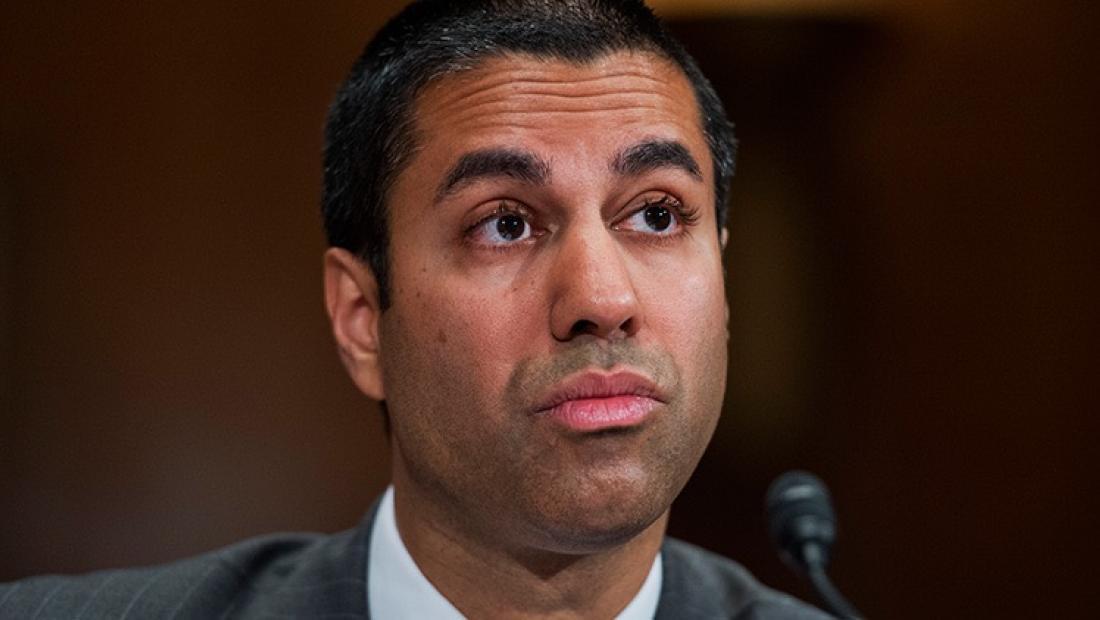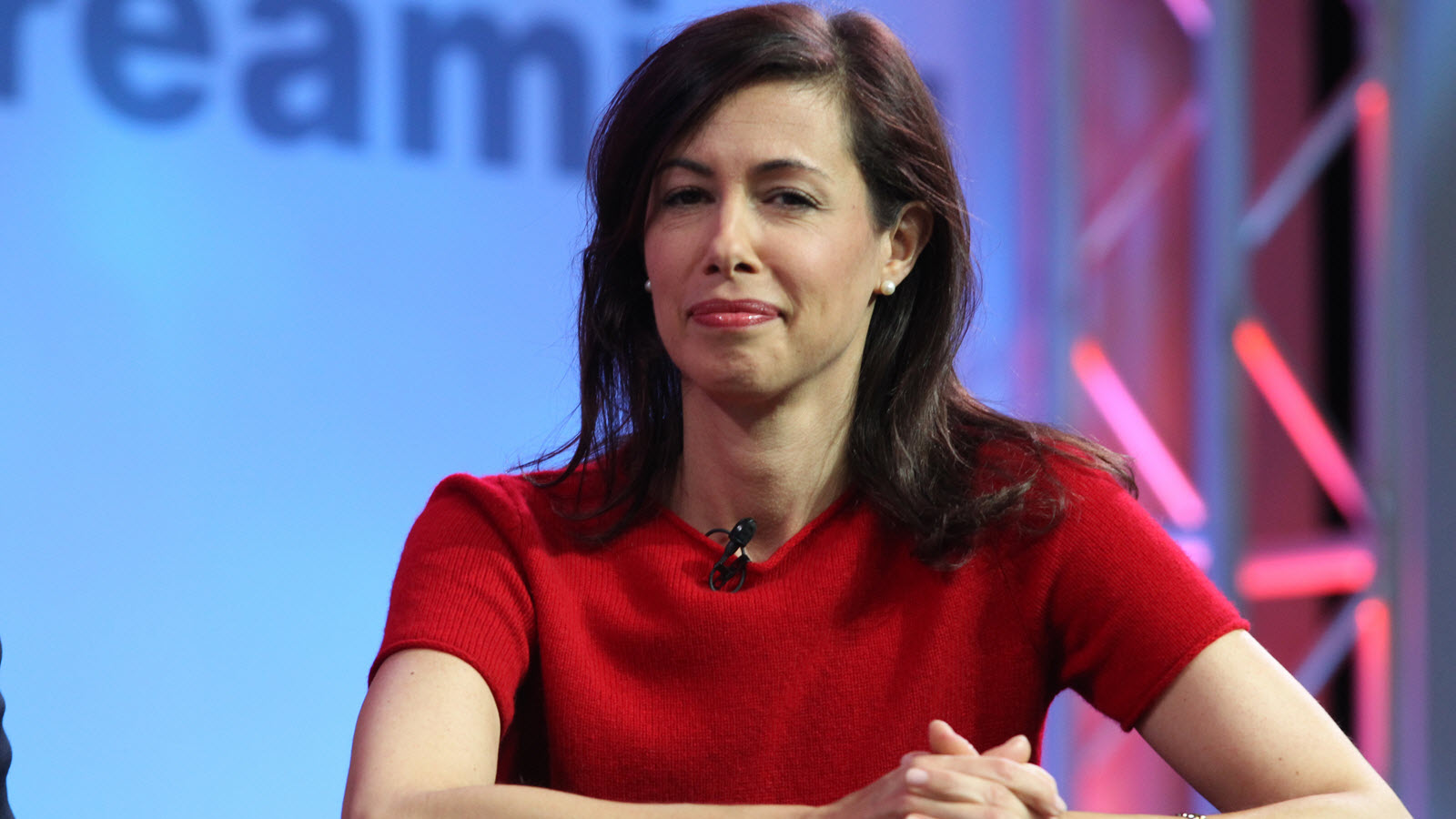FCC Classifies Text Messaging as Information Service
The smarter way to stay on top of the multichannel video marketplace. Sign up below.
You are now subscribed
Your newsletter sign-up was successful
The FCC has declared that wireless text messages--SMS and MMS--are information services (Title I), not telecom services (title II), making it easier for them to compete with SnapChat and other lightly regulated instant messaging services.
The item also concludes SMS and MMS are not functional equivalents of commercial mobile services.
That was also billed as a way for service providers to continue to protect their customers from span and scam robotexts, at least by the Republican majority over the objections of Democrat Jessica Rosenworcel (and Hill Democrats down the street). The vote was
3-1.
It was something of a mini-reprise of the Title II/Title I net neutrality rule debate, with a group of nine high-profile Democratic senators having told the FCC that classifying texts as Title I would give carriers the power to censor or favor speech.
They said it would allow them to block text messages to favor either their own texting services or to stifle free speech, analogous to the harms they envisioned for the Restoring Internet Freedom order's reclassification of internet access as Title I and the elimination of prohibitions on blocking, throttling and paid prioritization.
That FCC declaratory ruling on text messaging denies two petitions to declare text messages a telecom service. Texts had not previously been classified and the petitions gave the FCC a chance to weigh in.
Related: Democratic Sens. Have Message for FCC: Texting Should Be Title II
The smarter way to stay on top of the multichannel video marketplace. Sign up below.
The FCC says a text messaging service provides for storing and retrieving information, so it is like email. It also finds that text messaging, like wireless broadband service, is not a commercial mobile service because it is not connected to the public-switched network.

FCC chair Ajit Pai said that given that consumers open 98% of SMS texts, Americans trust text messaging, which is why carriers already prevent the majority of robotexts using anti-spoofing messages and other tools. But some want the FCC to curtail these efforts, which he said would open the floodgates to robotexts along the lines of the current flood of robocalls under Title II common carrier phone service.
Pai said wireless providers are empowered to continue preventing a flood of text messages. He also said the FCC should not make it easier for spammers to bombard consumers with unwanted texts, but that that is what would happen if they were subject to common carrier regs under Title II, as mass texting companies have asked. He said he refused to allow robotexts to infest phones. "We stand with the American consumer."
Commissioner Michael O'Rielly said that text messages are not interconnected and should not be subject to common carrier regs and that the ruling will allow text messaging services to better compete with instant messaging services like Snapchat or WhatsApp.
O'Rielly pointed out that the next generation of texting service will also be considered Title I. But O'Rielly also said the FCC should finally classify VoIP as an information service.
Commissioner Brendan Carr said the decision simply clarifies the status quo, but said neither the facts nor the law matters to those interested in the "partisan politics of dissent." He said such apocalyptic rhetoric was SOP for "that crowd."
He said the same groups that predicted doom and gloom after the Restoring Internet Freedom order classified ISPs as Title I services "trotted out" their "sky is falling" rhetoric, and that would be similarly proven untrue.

Rosenworcel, who strongly opposed the FCC's deregulation of net neutrality rules, was not celebrating the latest Title I classification. “In [today’s decision], the Federal Communications Commission continues its quest to dismantle the regulatory frameworks that protect Americans and that were intended to make phone, cable, and internet service more fair and more affordable," she said.
"We do that here by considering a petition that asks us to affirm what should be obvious—that text messaging is “telecommunications”—which is to say that when you send a text, you expect that your carrier will send it where you want it to go without changing its content or blocking it. It’s that simple. But instead of using this common-sense approach, this agency does the opposite. We twist the law to reach the conclusion that you no longer have the final say on where your text messages go and what they say. That means your carrier now has the legal right to block your text messages and censor the very content of your messages...This agency did the same thing with internet service last year."
She said the FCC suggesting the item was all about robocalls was deceptive and burying the lead that the item was about big companies, not blocking robotexts for consumers.
Stakeholders were quick to respond.
“The FCC’s action definitively classifying wireless text messages as an ‘information service’ is overdue, so it’s especially welcome," said Randolph May, president of the Free State Foundation, which had urged the FCC to take the step. "It’s consistent with the law, and the classification reinforces the fact that the wireless providers possess flexibility to take actions to prevent unwanted spam. If they ever abuse this power, consumers have alternatives from which to choose.”
“We commend Chairman Pai and the FCC for protecting consumers from an avalanche of messaging spam and allowing them to continue to benefit from a flourishing and competitive messaging ecosystem,"said CTIA SVP Scott Bergmann.
“The FCC has an obligation to promote competition and freedom of speech over our telecommunications networks,” said Sen. Ed Markey (D-Mass.), one of a number of Democratic senators who had registered their displeasure with the FCC's proposal before the vote. “With this action, the FCC stifling free speech by giving telephone carriers the freedom to block any text message they wish, potentially harming competition and our democracy values. Congress can right this wrong, which is why I intend to introduce legislation to rescind this order and establish appropriate safeguards to protect this vital means of communications.”
“Americans today are sent dozens of spam text messages, yet the channel is comprised of less than three percent spam," said John Lauer, co-founder and CEO of Zipwhip, of the text messsaging decision. "That is because texting providers such as my company, Zipwhip, are able to monitor for and subsequently block fraudulent messages. In fact, in any given month, we will toss out more than 20 percent of texting traffic due to fraudulent messages such as loan scams, fake credit card alerts, and false bank notices. This not only shields consumers from abuse but keeps text inboxes the high-priority channel they have come to expect. Consumers can continue to expect texting to stay spam-free thanks to today’s FCC ruling classifying texting as an information service. We congratulate the Commission on this vote and appreciate the Commission’s apparent intention to apply the same status to rich communication services (RCS). As the next-generation of SMS, the same concerns around spam will apply to RCS and we are encouraged by the FCC’s forward-thinking approach to safeguarding against abuse before it takes place.”
“The Federal Communications Commission’s declaratory ruling classifying wireless messaging as an information service is a much-needed cleanup of an issue left unresolved for more than a decade," says Roslyn Layton, visiting scholar at the American Enterprise Institute. "Other countries don’t have the information and communications services distinction that the U.S. has, and this decision ensures Americans maximum enjoyment of texting services and protection from unwanted spam. Any harms that arise can be addressed by strong oversight from the Federal Trade Commission.”
“We’re pleased to see the FCC continue to move forward on making more spectrum available to help the U.S. win the global 5G race," said CTIA SVP Scott Bergmann.
“AT&T takes very seriously our commitment to protect consumers from unwanted text messages, and this is why we strongly support today’s declaratory ruling," said EVP Joan Marsh. "This action empowers wireless providers to continue to protect consumers from spam and robotexts, while safeguarding legitimate texts.“As the industry upgrades from traditional SMS messaging to a more sophisticated protocol, AT&T is leading efforts to ensure the delivery of trusted traffic while minimizing inadvertent blocking. These efforts include the introduction of a ‘tagging’ pilot that assigns a trust level to certain traffic, adopting an AT&T Code of Conduct with simple rules and guidelines for pushing through legitimate traffic, creating feedback loops that provide timely information when spam issues arise, and developing a pilot False Positive Portal that enables the reporting of inappropriate blocking and provides a mechanism to request unblocking."
Contributing editor John Eggerton has been an editor and/or writer on media regulation, legislation and policy for over four decades, including covering the FCC, FTC, Congress, the major media trade associations, and the federal courts. In addition to Multichannel News and Broadcasting + Cable, his work has appeared in Radio World, TV Technology, TV Fax, This Week in Consumer Electronics, Variety and the Encyclopedia Britannica.

